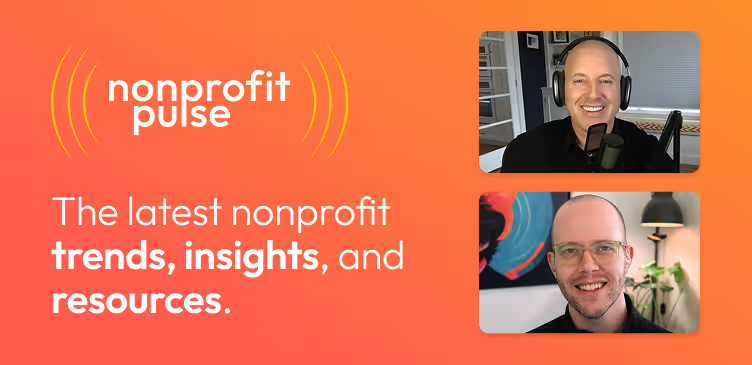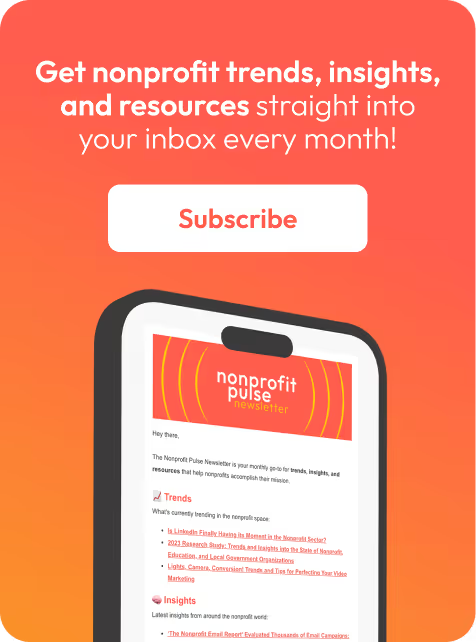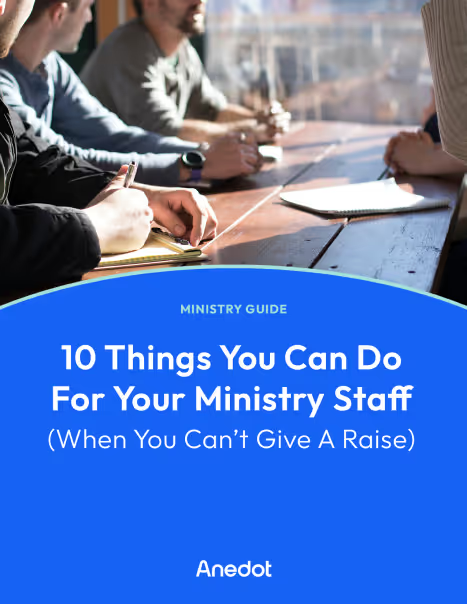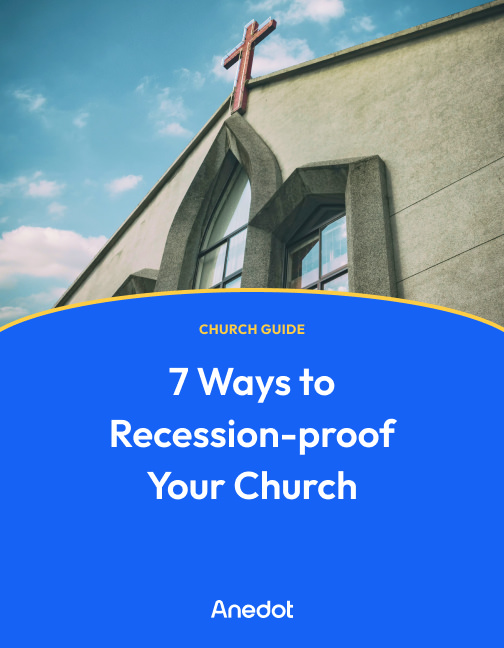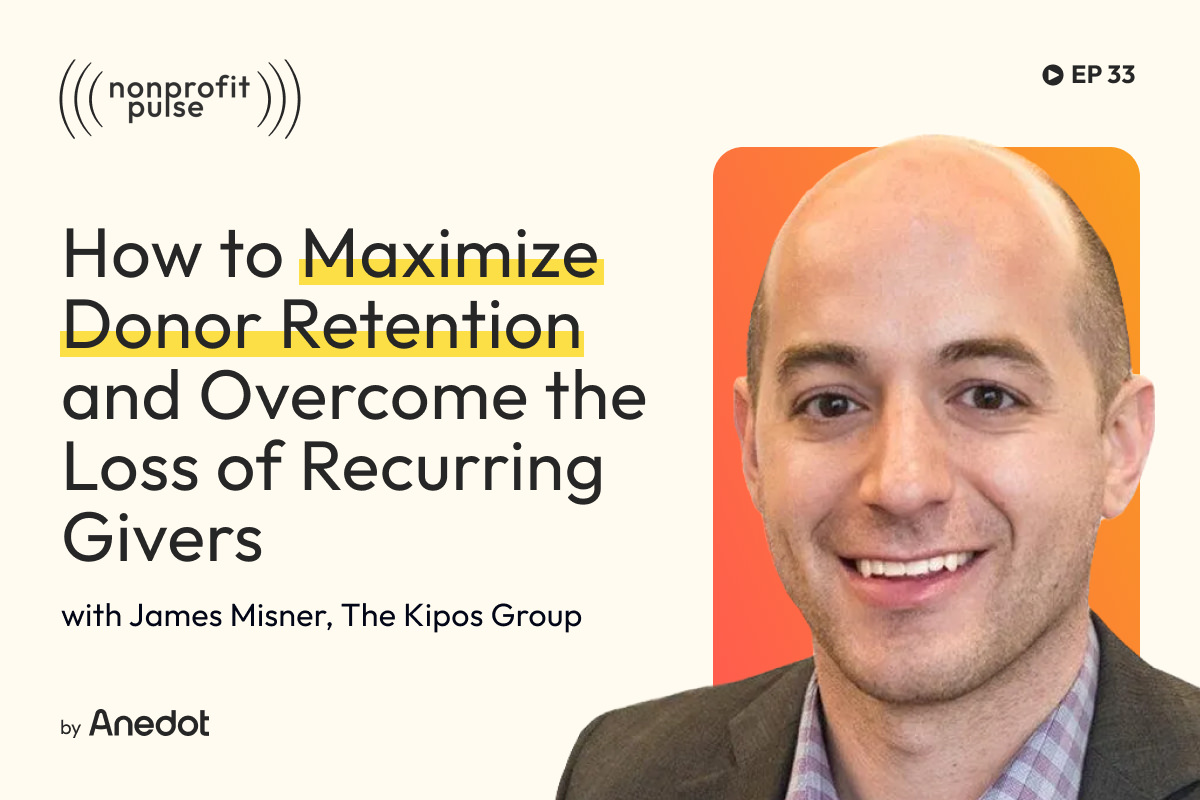Figuring out how to get donors for nonprofit organizations is no easy task.
How can you grow your donor base with inflation still rising, the stock market as unpredictable as a ping pong ball, mortgage rates slowing the housing market, and rent increasing to record highs.
Fundraising is a challenge at any time, but especially when donors’ household finances get tight. You cannot pour water from empty buckets.
Here are eight ways you can grow your donor base to help keep your cash flow healthy and pursue your organizational mission.
1. Ask existing donors to champion your cause

Few people are better cheerleaders for your organization than the people who already love it! So, why not ask them to talk it up within their networks?
Researchers have long known that social proof encourages others to look favorably on a cause or organization.
So, empower your supporters to advocate for your organization. You can do this by providing resources that will make it easy for them to champion your cause.
Here are some good ways to help your supporters champion your cause:
- Send branded swag and ask them to publish photos on their social media accounts. These items are easy to brand and ship: coffee mugs, stickers, t-shirts, insulated water bottles, and key chains.
- Provide them with specific information that will help them talk about your cause. You can do this via email or by including a printed sheet with your swag.
- In an email or on social media, highlight your supporters who are publicly promoting your organization. This will encourage others to champion your cause.
2. Market your nonprofit organization to potential donors with adjacent interests

If your nonprofit organization provides meals to the homebound, that concern is adjacent to helping people get their utilities paid.
If your organization supports kids’ education, that effort is adjacent to ensuring school-aged kids have school supplies or clothes.
Social media can be helpful in this regard as recommended “likes” and “follows” are based on the accounts you already like and follow.
Use these recommendations to identity adjacent groups, then target those followers with your efforts.
3. Send a first-time donor welcome note or gift

Nothing is worse than feeling like what you do doesn’t matter, especially when what you do involves money.
You do not give wedding gifts to get a thank you card, but you always wonder about the couple’s appreciation if they do not send one.
The fundraising team at BWF says:
“New donors, regardless of level, should receive an extra level of donor treatment to welcome them to your organization and encourage them to stay involved.”
This is different than offering something for a donation, a tote or mug, for instance.
The first-time donor communication or gift should be unexpected and, if possible, unique.
Consider:
- A thank-you card handwritten by a volunteer.
- Swag, based on donation level. (There are many companies who can make this happen by handling both printing and shipping. Bonfire is one of them.)
- A phone call from an employee, or even the president/director of your nonprofit organization.
4. Create a matching gift program

Donors will often respond if they know their donation will be doubled.
A 100 percent increase is a multi-faceted investment; it helps the receiving organization and it encourages the donor.
Matching gifts can be secured several ways. Here are three:
1. Corporate matching gift programs
Many companies will match their employee’s donations to nonprofits.
Encourage your donors to check the giving policy at their company so they can instantly increase their donation amount.
2. Funds from a major donor
People who have the resources to give large gifts will sometimes leverage a gift toward a matching gift program.
Ask one of your major donors for such a donation, specify how it will be used, then watch $25,000 become $50,000 or $100,000 become $200,000.
3. Matching gift challenge from your reserves
If it looks like you’ll need to utilize your reserves to get through a financial downturn, why not use some or all of it for a matching gift challenge?
"Every two dollars given to this challenge will allow us to spend only one dollar from reserves” or a similar idea gives your supporters an opportunity to meet your goal in a big way.
5. Stay connected to your existing donors

Efforts to grow your donor base should include initiatives to reduce the churn of existing donors.
I recently received a birthday gift from a friend who happens to be a realtor. We are not in the market to sell, but we will be one day.
The small pack consisted of one candle, a pack of make-in-a-mug brownie mix, and a QR code to a video of she and her daughter singing happy birthday (they are both excellent singers).
All of it was inexpensive and likely assembled by the office admin. But, I would be hard-pressed not to use her as an agent all because of that single effort to stay connected.
Here are a few other ideas depending on how much data you have on hand:
- Birthday postcards (does not have to include brownies and singing)
- Anniversary cards
- Congrats cards for new child/spouse/pet/home
- Leaving supportive/encouraging comments on their social media
Staying connected does not have to be expensive, but it takes intentionality.
Connection makes donors feel more like family rather than simply sources of money; that makes a difference.
6. Re-engage your lapsed donors

People stop giving for any number of reasons, but the lapse is often extended when the nonprofits simply fail to remind the former donor that they are still around and doing good work.
The good news is the re-engagement does not have to be a direct ask. Try using a “Can we tell you about this great story?” update.
Remind them of the number of senior citizens being fed, immigrant families being resettled, books being provided to incarcerated persons, homebound people taken to the doctor, or the thousands of other needs met by nonprofits like yours, and turn their minds—and hopefully their hearts—back toward your organization.
Another option is a direct appeal from your president/director.
7. Meet with local faith communities and community groups

Depending on the mission of your nonprofit, certain local faith communities might consider allowing a presentation from your organization.
If your organization helps fund church-plants internationally, some local churches would be willing to support you. If your organization promotes religious freedom for all, synagogues and mosques (as well as some churches) might entertain your request. If your organization provides care for children of the working poor in your community, all faith communities might be willing to help.
Take the time to cultivate relationships with as many pastors, rabbis, and imams as you can to widen the area when it comes time to cast the net.
In addition, build relationships with business people that love to help nonprofit organizations that meet needs in your community.
Dozens of churches in Wilson County, Tennessee formed Everyone’s Wilson, a nonprofit that “unites the church to engage the community so everyone thrives.” But Everyone’s Wilson does not rely solely on church support; they engage business leaders too.
Daryl Crouch is the executive director of Everyone’s Wilson. He says:
“A vibrant business community will be concerned about the needs and health of the community, because they also live and work there. Supporting nonprofits that meet needs in the community provides greater opportunities for everyone to thrive.”
8. Encourage your board to find donors

Every nonprofit has a board of directors. Unfortunately, nonprofit board members are often unengaged with potential donors.
Encourage your board not to miss opportunities to recruit new donors.
Matt Hawkins, the board chair at One America Movement, says this:
“Participation by board members in donor relationships communicates about the health and vitality of the organization. The board has opportunity to demonstrate both their buy-in to the organization’s trajectory, as well as their accountability and support of the president, director, or CEO.”
Depending on your board’s composition, some of them might know high net-worth individuals through work, associations, church, hunting clubs, or business partnerships. These are people who should be asked to become supporters.
We all take notice when someone we know supports an organization. Having your board members speak with potential new donors is a powerful way to grow your donor base.
Grow your donor base with Anedot

Few things have more impact for your nonprofit than ease of giving for your donors.
The more difficult it is for them to give, the more probable they will move on to something else.
Anedot provides powerful giving tools to empower your nonprofit (or church, college, or school), including recurring giving options, multiple funds, and more, all without monthly fees, signup charges, or contracts.
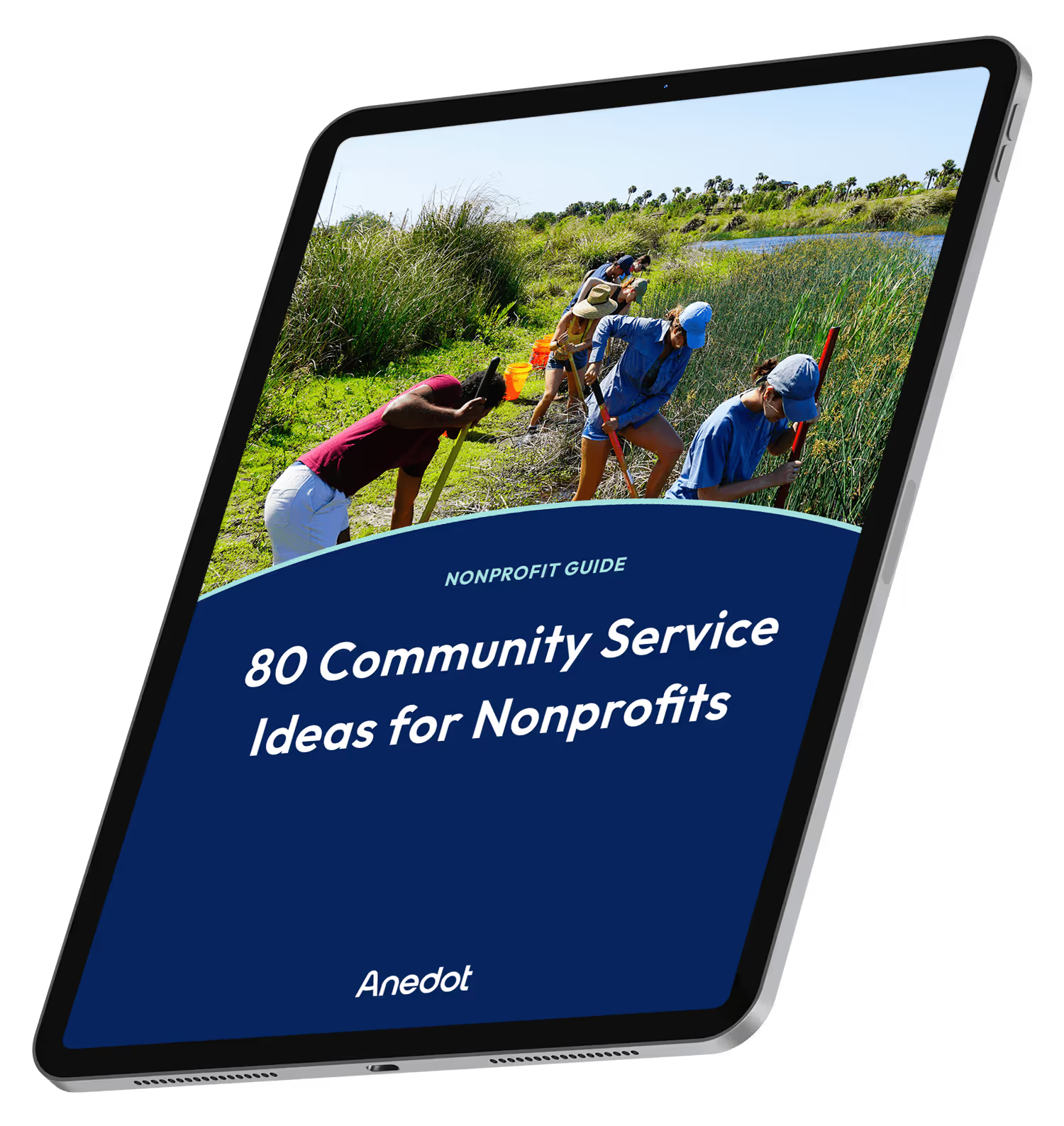
80 Community Service Ideas for Nonprofits

